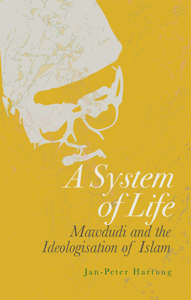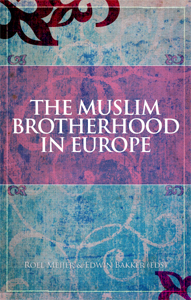A System of Life
Mawdudi and the Ideologisation of Islam
A pioneering examination of the earliest attempt at a systematic outline of Islamist ideology propounded by the renowned Indo-Muslim intellectual Sayyid Abu ‘l-A’la Mawdudi.
Description
While much current research on political Islam revolves around militant Islamism, the genesis of this ideology remains little understood. A System of Life is a pioneering examination of the earliest attempt at a systematic outline of Islamist ideology, namely that proposed in the 1930s and early 1940s by the renowned Indo-Muslim intellectual Sayyid Abu’l-A’la Mawdudi. Hartung reconstructs his thought in the light of the competing ideologies at play at the time, especially his claim to recast Islam as an all-comprehensive, self-contained and inner-worldly system of life. His analysis is embedded in an understanding of the history of ideas that assumed increasingly global dimensions through colonial encounters. By showing how Mawdudi — depicted as a major protagonist of this development — attempted to align elements of Western philosophical thought with selected traditional Islamic ideas and concepts, ‘Islamism’ is established as an Islamic contribution to a universalistic notion of modernity. Alongwith offering a detailed portrayal of Mawdudi’s system of thought, Hartung also discusses the reception and modification of his ideas in the Middle East, predominantly among intellectuals of the Egyptian Muslim Brotherhood, and among their imitators in postcolonial South Asia.
Reviews
‘Hartung draws on a deep knowledge of Islamic thought to revise the intellectual history of [Islamism]. Maududi emerges as an original thinker with universal ambitions … A System of Life shows more powerfully than any previous book that Islamist thought emerged from south Asia, and was formed in the crucible of identity politics and jockeying for position in the years leading to the end of colonial rule. In understanding what is happening in the world today, it may be profitable to look again at this earlier time of global transformation.’ — Patrick French, The Guardian
‘[A System of Life] is a detailed study of [Mawdudi’s] thought and legacy was long overdue, and Hartung’s book certainly fills that gap… the book is clearly based on a deep knowledge of Islamic thought in both pre-modern and modern times. More than that, in placing Mawdudi’s thinking within the wider context of modern political ideologies – Western as well as Muslim – it contributes to a healthy trend of seeing Islamic thought as a fully pledged participant in the global contest of ideas.’ — Asian Affairs Journal
‘A System of Life reinvigorates Mawdudi’s place in the pantheon of twentieth century ideological figureheads and makes a convincing case for regarding him as being just as important as many of the Arab ideologues — if not more so. Hartung proves himself a master at unsettling conventional wisdoms. A must read for anyone interested in Islamic political thought and the history of modern Islamism.’ — Peter Mandaville, George Mason University, author of Islam & Politics
‘How do communism and fascism, as also liberalism and democracy, mesh with Islamic ideals and become the basis for a new worldview that also has sociopolitical traction in the Muslim world? This is the question posed, pursued, and answered by Jan-Peter Hartung in the most comprehensive, and insightful, study of Mawdudi since Charles Adams’ 1966 article: The Ideology of Mawlana Maududi. Recommended for all who engage the range of reflection about politics, society, culture and religion in the 21st century.’ — Bruce B. Lawrence, Nancy and Jeffrey Marcus Professor, Duke University, and author of The Qur’an: A Biography
‘In this carefully crafted investigation, Hartung identifies the multiple sources at the heart of Mawdūdī’s reconstruction of an elaborate alternative Islamic scientific path, and its political impact on the Muslim, South Asian, and Arab worlds. The author demonstrates how Mawdūdī’s system was fashioned by a rereading of religious texts and a critical assessment of Western philosophers, as well as by the early twentieth century European ideologies against which he reacted. Students of Islam and of comparative political thought will find this study exceptionally valuable, not least its analysis of the cultural filters through which truth, text, meaning and context renegotiate their interrelationships.’ — Michael Freeden, Professor of Political Theory, University of Nottingham
Author(s)
Jan-Peter Hartung is Senior Lecturer in the study of Islam, with special reference to South Asia, at the School of Oriental and African Studies, University of London.

